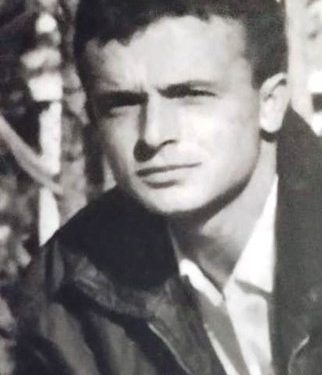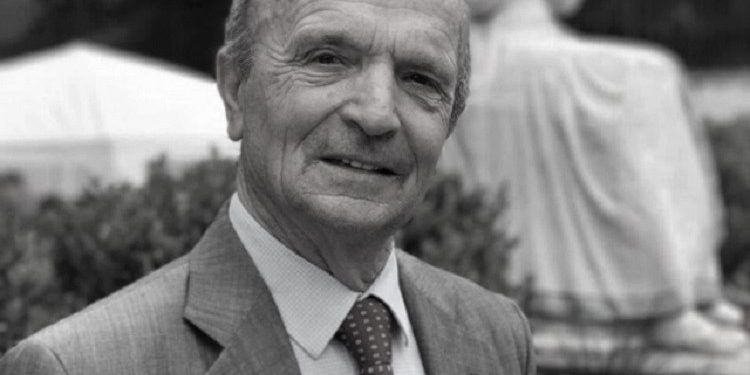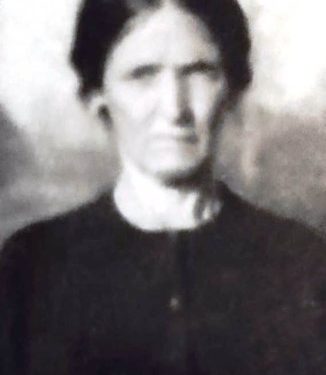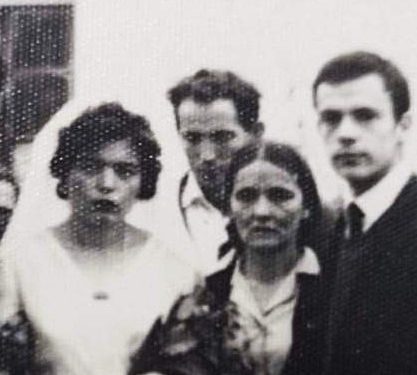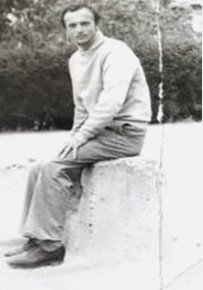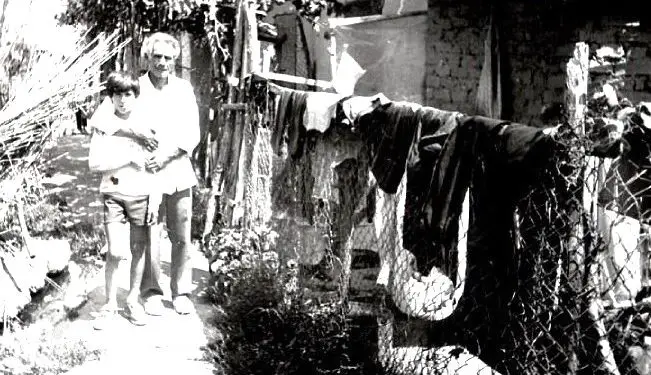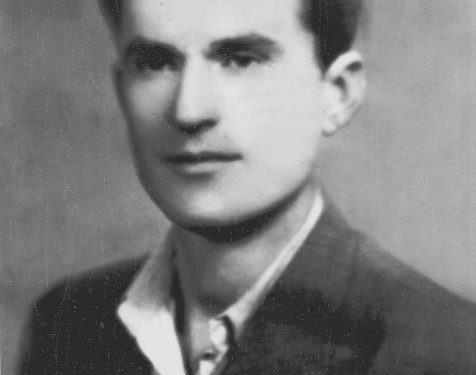By SIMON MIRAKAJ
Second part
“Camps under the shadow of Tomorri, 44 years of internment”
Memories
Memorie.al / I put these memories down on paper after a long period of hesitation. This is probably because the subjects were always fresh in my mind, which followed me mercilessly during the years after the fall of communism. But there comes a moment – when time takes its course – and the images of horror and suffering came fading to me – almost the suffering passed into oblivion. Then I decided to repeat the most impressive events – first in my mind – until they took the form of these narratives. As dim as these accounts may seem – they create the idea of the harsh reality and misery of the camps.
Figure and sadistic teacher in Tepelena
The city seemed empty, few cars moved, the few pedestrians that were visible followed the shadows to avoid the sunlight that had poured scorching on the earth.
As soon as I finished my coffee, I went out; I decided to take a taxi home, to avoid the July heat. I opened the door, in front of me was my portrait, and I had placed it in that position myself. I sat in front of him, I was looking at him with much longing, with much love, that high forehead, on top of his forehead stood a little carefully combed hair, full mustache, they added to the noble appearance, we both looked at each other, he stood as always silent and with the same look, as if he wanted to know something.
I greeted him every day, good morning, good day, good night even though I knew that I would not receive any answer.
Dear father – how I envied the children who called; o father, – or the father who called his children; – come on dad. I never called my father, but I was not the only one who had this bad luck, there were many children who suffered from the injustice of the communist dictatorship, which separated us forever. I took my first class in the infamous Tepelena camp, don’t be upset by what I’m about to say…! The teacher, after we finished the lesson, stopped me and said:
Do you love your father?
Yes teacher, I love him, – although I had not seen you and neither had you seen me.
Open your hand – said the teacher, shooting at me with the blade of the ruler. I never told him that I don’t love my father.
Halil Zenuni was the only one who spoke to us about you, with great consideration, and every time he mentioned your name, his lip trembled.
“When you Simon was born, I was on the mountain with Paul, when he found out that a boy was born, he shot a rifle up.” – When we met the aunt’s husband, Bardh Maksuti, for the first time I envied him, when he told us that: “I remember Pal when he came to us in Rugova, took me in his lap and gave me an apple”.
How I wish I could sit on his lap.
Nana spoke to us a little, maybe because of the habit, when she spoke we understood that they had been an ideal couple. Once, when we were returning from school with Sokol, she was singing softly, and tears flowed from her eyes, passing over her cheeks, now wrinkled from suffering, falling on the ground.
“Mom, are you crying for dad”? – She immediately wiped away her tears.
“No, take your cake, Nana, I don’t even know why I got it”, he squeezed us both with great force.
Aunt Lena, who never left us in the camps, coming with us, at dinner, she would start talking about you, about Aunt Kola, about Aunt Pashuk, about Noci, Drana, we would sit and listen, she would say longingly: – “Eh you guys, you don’t know what kind of men they were”.
Aunty would start reciting verses from her poems to us.
I remember when we got the first picture of you, you were in the middle of the mountains, I say to my mother, after I saw the picture:
“Why did you take this old man, because you were the only one without hair”!
The mother started to laugh.
When Vali’s sister-in-law was pregnant for the second time, we sent her a letter, asking you to give us a name if a boy was born. Fortunately, you had received the letter, I remember the names you sent, like; Philip, Rock, Leon. God gave birth to a boy, and we named him Leo, although the Civil Registry did not accept this name, but registered Leo, you could not choose the name you wanted. They say that Leoni is very hard on you.
Nana died young, but she was satisfied that she left Sokol married and with children, as well as for Lajde’s children, she was satisfied as a grandmother. Our nans were heroines, you’re not sorry to say so. We sent him to the next life with a lot of pain, many people gathered. We buried him next to a church that was preserved as a cultural monument, because the churches and mosques were dilapidated. Leka also placed a wooden cross on his head. We laid for the guests and a lunch, in her memory.
I was returning from work with a shovel on my arm that day, when I entered the kitchen, I saw Sokol with his head down, I realized that something had happened, I sat down close, and Sokol put his hand on my neck:
“Simon father has changed his life”, we both hugged each other with tears in our eyes. The next day we had a lunch with friends from home. Times changed, communism collapsed, we won Freedom. Freedom to move. This freedom gave us the opportunity to meet the fighters together; Pashk Adam, Pjeter Kukë, etc. When I came to America for the first time, I went to “Vatra”, the president was Agim Karagjozi and he spoke to me with great consideration about you, as well as Zef Përnoci and Zef Bala.
A mountaineer from Mirdita, named Tom, sent us a letter from Trieste, among other things, he told us:
“Sokol and Simon are proud of your father”!
Dad, you should also be proud of us and, rest in peace, we enjoy the respect of all those who know us.
At the promotion of Aja Kola’s book, “The Suicide of a Nation”, which was held at the headquarters of “Vatra” in New York, we were very moved by the speech of our friend Idriz Lamajt, where he quoted your words on the first visit that you had, after a long time in America.
– Oy Bore, a hot corn bread and a piece of cheese, because I’m in a hurry, (the words he said when he was on the mountain), my mother’s eyes filled with tears, near the door of the waiting room where my mother, father and aunt, tired of the old man, they waited for me to hug Paul.
I felt difficult moments when Leka and my friends left for the cemetery in New York. It didn’t take long and I found myself in front of a marble slab, where two names were engraved: Kol and Pal Bib Mirakaj. Leka and his friends stopped a few meters away, I started to caress that cold slab and, I sat down on my knees, I saw that the grass fibers were hit by the tears that flowed freely, Leka and he with tears, together with his friends, put his hand on my shoulder, I caressed that plaque once more, holding it with my hand and saying:
“Rest in peace”. – That’s how the conversation with me ended, who was standing in front of me in a frame. I took the frame in my hand; put my lips on the glass that covered his portrait.
Habibja and Prende Tarçukeja
The door to Tepelena’s camp was opened. A large “Skoda” car entered the camp, in the middle of it, a woman chained. We camp children were playing in the yard. When we saw the car we left the game and approached the car. The policeman got into the car, untied his hands and took him down. She was a half-grey woman of about 50, with big drooping eyes, wearing a military tank top and bare feet. We found out that her name was Habibe.
That desert was sick and crazy. We children were afraid of him when we saw him come out of bed; he walked in the yard and talked to himself. Habibja was from Tropoja – while wandering in the mountains, she was caught by the border patrol. They punished him by sending him to exile in Tepelena, probably because he was escaping. She actually didn’t know where she was when they caught her. When the Tepelena extermination camp was dismantled in 1954, he was brought to Saver. Habibja was interned in Savër for two years, and then was released in 1956.
Prend Tarçukeja
Prena was from Poravi i Puka. Her husband had escaped with the detachments to the mountains, to fight against communism. Prena was brought into exile in 1951, in the Tepelena camp, along with a little girl, who died due to lack of food and hygiene. Today, even without a grave, like many others. Prena, due to lack of cleanliness, fell ill with dysentery. The bathrooms were inside the perimeter wire at the end of the courtyard, there were five bathrooms for 2500 people. Prena approached, but the queue was long, then she looked to the side and sat in the yard near the bathrooms and defecated.
The policeman of the Selfo camp saw him from a distance. Capterri ran and stopped Prena. The policeman had taken a basin, to which he had put a wire and said to Prena, collect what you did in the basin. She acted on the screams of the captain, who hung the pelvis around her neck and ordered her to be brought around the camp, where the people had come out for air. Prena with a pelvis around her neck, walked around the camp. Shocked and sick, she spun this scene and a satirical poem.
“Medet e kuku/ e Kuku e meted, / the cauldron of shit, ex-can for gasep”!
These are the verses that Prena wrote about the macabre act of the policeman, in the camp yard. Prena recited it aloud. After three hours, the captor released him and removed the pelvis from his neck.
Porto – Palermo 1949 – 1950
The camp of Porto – Palermo was located between Himara and Qeparo, they say that the castle was built in the time of Byzantium; inscriptions in the Byzantine language were found on its walls. The Ministry of the Interior, in agreement with the Tepelena Department of Internal Affairs, decided to transfer some families from the Tepelena camp to the fortress of Porto – Palermo.
“The families that were transferred, – recalls Vasil Kokali, – one of the members of that camp, – were: Gjonmarkagjon, part of the Mirakaj family, Gjinaj, Mojsi and Lek Mirakaj, the family of Fiqiri Dines, the family of Hysni Dema, the family of Preng Pervizit, Cen Elezit, Muharrem Bajraktari’s family, Nush Topalli’s family, Sinaj and Golet e Dibra and some kulak families from Devolli.
They also brought some bachelors there, such as Shpend Sherif, Xhevit Matjani, who was not yet 10 years old, Haziz Kurjani, Kujtim Velmishi, Avni Agolli, Vasil Kokali, Sabri Dërguti, Nue e Mark Doshi, Bajram Xhafa. The goal of the Ministry of the Interior was to break up families,” 92-year-old Vasil Kokali says today:
– “I left my two brothers, one 14 and the other 15 years old, in the Kruja camp, my mother and sister in the Valias camp, I, Vasili, came to Porto – Palermo, from the Lozhan camp.
Before going to Lozhan, we stayed for 17 days in Godovjat in Gramsh, without shelter, sleeping outside, accompanied by a light rain for days. 9 people escaped from Godovjati, 6 crossed the border, one was killed, one was wounded, and one was captured alive. On May 7, 1949, accompanied by numerous army forces, we set off from Godovjati on foot, loaded with our rags, to Lozhan, the road lasted three days, and we ate wild vine leaves from hunger on the way. In Lozhan, we started the very difficult work, opening a road that would connect Gramsh with Malik, who did not fulfill the norm, they put him in the water of the river Devoll as a punishment, there were also 80 Chams in the camp who had refused to join the forces of the Greek Communist Party of EAM, to fight against the Greek monarcho-fascists”, says Vasili.
“In the camp in Porto – Palermo, they also brought those who came out of prison, like; Viktor Dosti, Fatbardh Kupi, Alush Dizdari, Isuf and Imer Keqi. The situation in the camp was extremely difficult – remembers Vasili, – they gave us 400 gr. rye bread and, for a meal, beans juice, because beans grains were not seen anywhere, the bread was cooked in the castle”. One day, Vasili said to Deda, who was making bread: – “O Deda, how come I didn’t see you once and leave the loaves of bread”?! – “By God – said Deda, – it’s better that they wash the mice, I didn’t have mice so I left them”, the water was salty and full of worms, there was a lack of light in the castle, it was dark, there were no windows, the windows were small like pigeon cages, where the sunlight barely penetrated, to sleep we lay down on stone slabs. Capt. Ahmeti from Kuçi, who had arrived on transfer from Gjirokastra prison, where he had been the head guard, also spoke about the dire situation in the camp. “The prison of Gjirokastra has had enough,” he said, “but here we are crying for trouble.”
If our lives in this camp had lasted too long, no one would have come out of it alive. Within a year, three engineers came, two Albanians and an Italian, named Ugo, to see the camp where we lived. The Albanians approved our stay there, while the Italian persisted, saying that; this is uninhabitable, not only for humans, but animals cannot live here either. Some of our friends, like Mark Doshi and Nue Doshi, walked with bare feet, due to the lack of light in the castle.
“In December 1950, they sent us back to the Tepelena camp – says Vasili. – Doctor Lluka saw that their condition was serious, they were at risk of blindness, and he ordered the command of the Tepelena camp to allow them to go to the police garden outside the camp and eat onions, after they were cured as long as the doctor told you, they were back to normal”
SAVRA CAMP, 1954-1969
We came to Savra Camp on March 14, 1954, from the infamous Tepelena camp. Savra had the main road, which separated the neighborhoods from each other. One neighborhood was made up of internees and one neighborhood of those with good biographies. Most of them were musketeers, coming from Skrapari. The Tepelena camp was closed a year after Stalin’s death. As soon as we entered Savër, the car stopped near a barracks, many people approached the car, and from the car we saw the hand of the sister greeting us. His mother went down first, then we. Hugs and tears sister. She had been separated from us, since the age of 14, and many others of her age. From Tepelena, they were sent to the Kamza camp, Tirana, etc., to work in the Brick Factory. The sister held two wool vests in her hand, on the front side she had made a red arrow, she had made them by hand, we were very happy.
– “Here’s what’s wrong with you, sister”, – he hugged us.
Chloria, after hugging her mother, sister and brother, came wiping her tears and hugging us. They began to unload the spoils. The police captain together with an officer directed us to the barracks. In that barracks, all the families that had come with that car were settled. After they spread the mattress, put the quilt, these were the spoils. The sister took a bag of her own and went to get the food ration. We were hungry, she served us pasta soup. It was better than Tepelena’s dish. We started eating, with great appetite.
We do not have a holiday on November 29 – Savër, 1955
Tomorrow is the 29th of November. This date takes me back a little to my childhood (I was not yet 10 years old). I was returning home, covered in mud. I played with a ball, with a rubber ball, the field was all muddy. When I approached your house, nana had lit a fire with cotton branches, when she saw me like that she asked me:
-“Where are you?”
– “I played ball”.
– “Wash quickly and start studying.”
-“There is time for lessons, because tomorrow we have a holiday and we don’t have school”. – Nana took the towel, wrapped me with it and was wiping me.
-“How did you tell me? Tomorrow we have a party”?!
-“Listen, tomorrow we don’t have a holiday, son of Nana, this date is the date that took everything from us, it is the date that stifled our freedom. You mother’s son, at school with your classmates, just says: ‘We have a party’.
Don’t tell anyone that we don’t celebrate, that they put us in jail”.
-“But why do they put us in prison, what is prison, mother”?!
“When you grow up you will learn everything”. He kissed me and said: “Don’t forget the order”! I got dressed and went to the table with food.
-“Where are Beli and Lajden”?
– “Lajdja (sister) went to fill the well with water and Beli (brother Sokoli, that’s what we called him), went to buy bread.” It didn’t take long for you to understand that November 29 was the date that took the lives of many innocent people. It is the date that stifled freedom.
My Nana left this life young. Today, I always kiss and hug her without saying, her memory. Memorie.al




